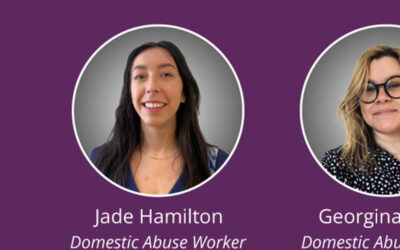Domestic abuse doesn’t affect me… Does it? I’m not married…
This is something we often hear when we speaking to young people about domestic abuse and domestic violence. But, what’s the truth? First let’s look at the definition of domestic abuse. This is the new definition found in the Domestic Abuse Act 2021:
Behaviour of a person (“A”) towards another person (“B”) is “domestic abuse”.
(A and B are each aged 16 or over and are personally connected to each other, and the behaviour is abusive)
Lots of different behaviours can be seen as abusive, such as forcing you to do things you don’t want to, making threats to you. It can be making you have sex when you don’t want to. Or bullying and abusing you on line and via social media. Taking explicit photos of you or videos and threatening to show them to people or publish online. All these things are abusive but, the key phrase for us is where it says “personally connected to each other.” What does this mean?
It could be they are married or in a civil partnership. But it can also mean a relative or a parent. If someone you are personally connected with is doing any of these things then, you are a victim of domestic abuse. Also, it doesn’t have to have happened many times, just once is still classed as domestic abuse.
Further changes to the Domestic Violence Bill state that a child can be a victim of domestic abuse. If any of the below has happened to them, or if they are inadvertently affected, they can also be classed as victims.
What forms of domestic abuse are there?
As found on the GOV website, domestic abuse can manifest in a variety of ways.
Does your partner, ex-partner or someone you live with:
- cut you off from family and friends and intentionally isolate you?
- bully, threaten, or control you?
- take control of your finances?
- monitor or limit your use of technology?
- physically and/or sexually abuse you?
Domestic abuse is not always physical violence. It can also include:
- coercive control and ‘gaslighting’
- economic abuse
- online abuse
- threats and intimidation
- emotional abuse
- sexual abuse

A recent study in America has found that women between the ages of 18 – 24 are most commonly abused by an intimate partner. In the UK a study found that 41% of girls aged 14 – 17 have experienced sexual violence from their partner.
1 in 4 females and 1 in 6 males will be affected by domestic abuse in some way during their lifetime. If you have a circle of friends then chances are, someone you know has been or is being affected.
So, do you still think you are too young to be affected by domestic abuse? As you can see, domestic abuse affects all people, of all ages.
Domestic abuse and what can be done
At PARAGON we run the Dragonfly Project. We offer free domestic abuse workshops to help people understand what domestic abuse is. They examine how domestic abuse can impact victims and where to get help.
We offer these workshops virtually, in your office or school.
If you or someone you know is being or has been affected then please get in touch with PARAGON for information and help.
Join one of our free workshops and you can help your community with signposting to domestic abuse services.



